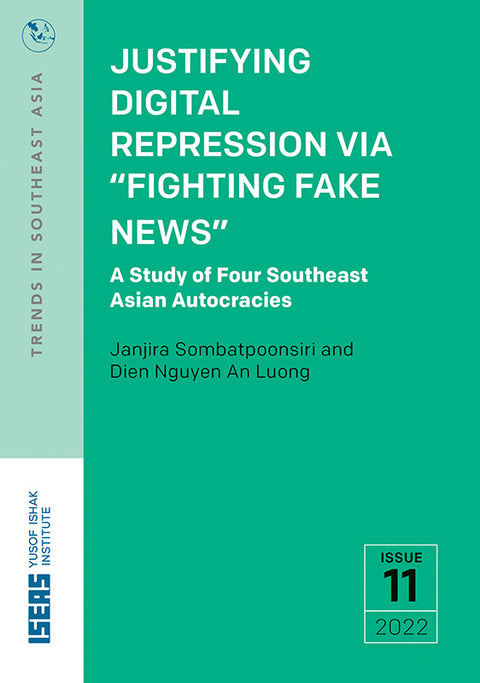
Justifying Digital Repression via "Fighting Fake News": A Study of Four Southeast Asian Autocracies
Checking local availability
Title
RM31.55
Publisher, ISEAS – Yusof Ishak Institute
Publication Date,
Format, Paperback
Weight, 363 g
No. of Pages, 38
Southeast Asian autocracies of Cambodia, Myanmar, Thailand and Vietnam have politicized vague definitions of “fake news” to justify diverse tactics of digital repression.
In these countries, what constitutes falseness in “fake news” has hardly been clearly articulated. The governments instead focus on the grave threats the dissemination of “fake news” could pose to national security, public disorder or national prestige.
As the governments are vested with the power to bend the labelling of “fake news” to their will, they can criminalize those accused of circulating such information to safeguard public interests.
There are at least four methods by which the governments have tightened the screws on cyberspace under the banner of curbing “fake news”: (i) prosecute Internet users, journalists and dissidents in particular; (ii) pressure Internet Service Providers and social media platforms to block and remove content; (iii) expand and deepen social media monitoring; and (iv) shut down the Internet altogether.
All four countries have used “fake news” allegations to penalize critics. Cambodia, Thailand and Vietnam are inclined to use such allegations to strong-arm tech companies into removing content at the behest of the governments. Thailand and Vietnam tend to exploit such allegations to beef up online surveillance. Myanmar is the only country that turns to Internet shutdowns.
The interplay between the methods of digital repression that exploit the pretext of cracking down on “fake news” and the manipulation of online discourse through the deployment of cyber troops would merit further research and in-depth examination.

